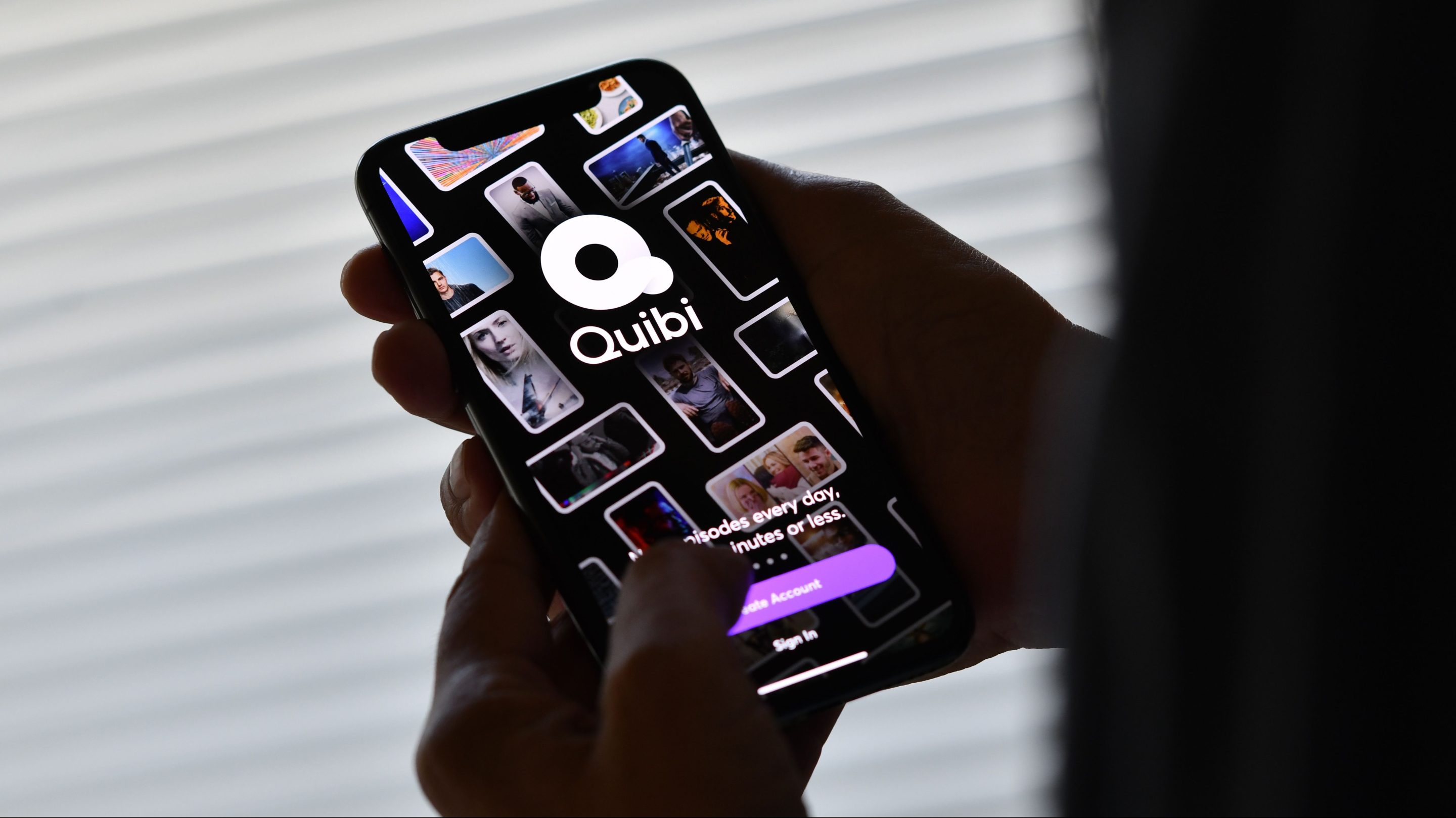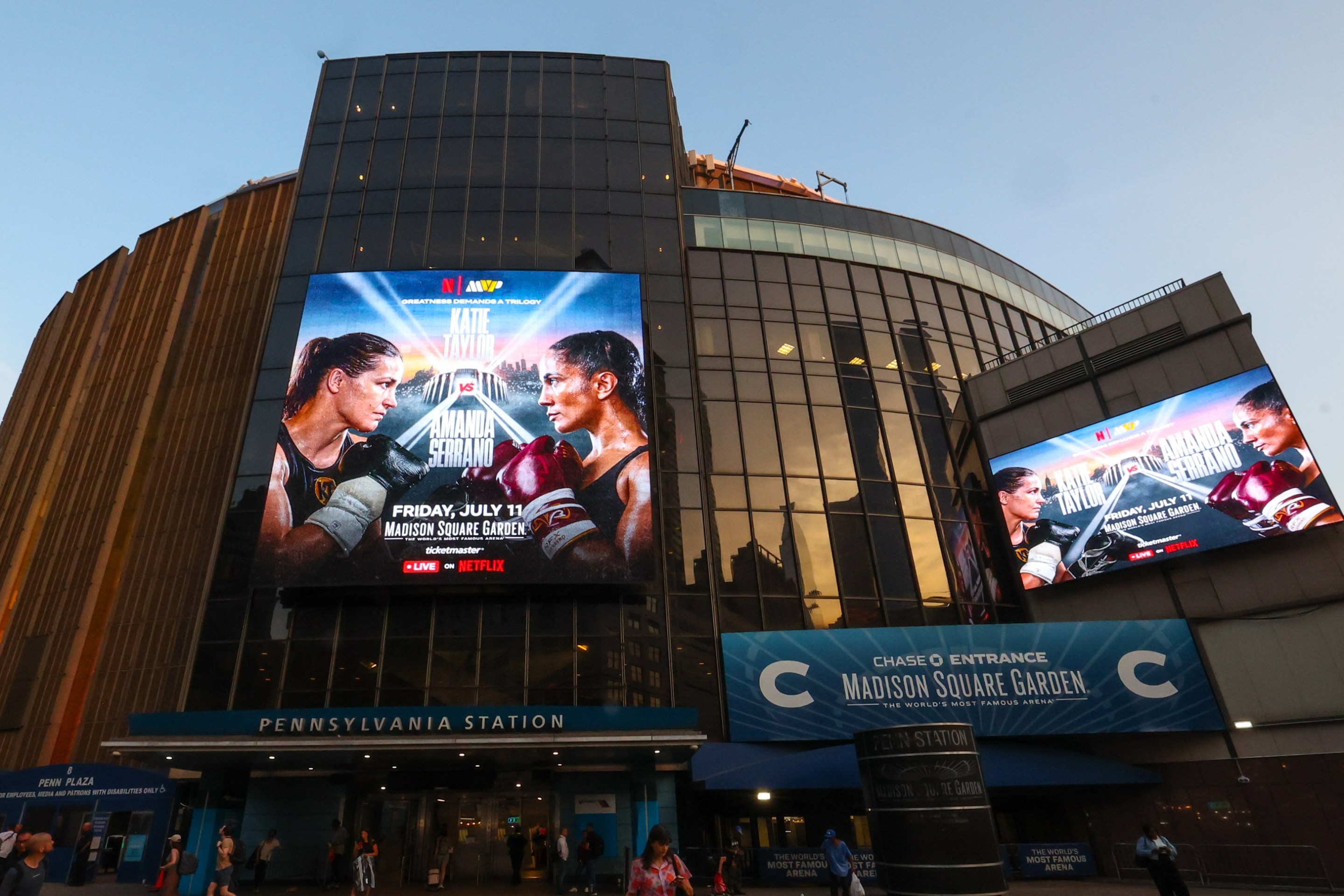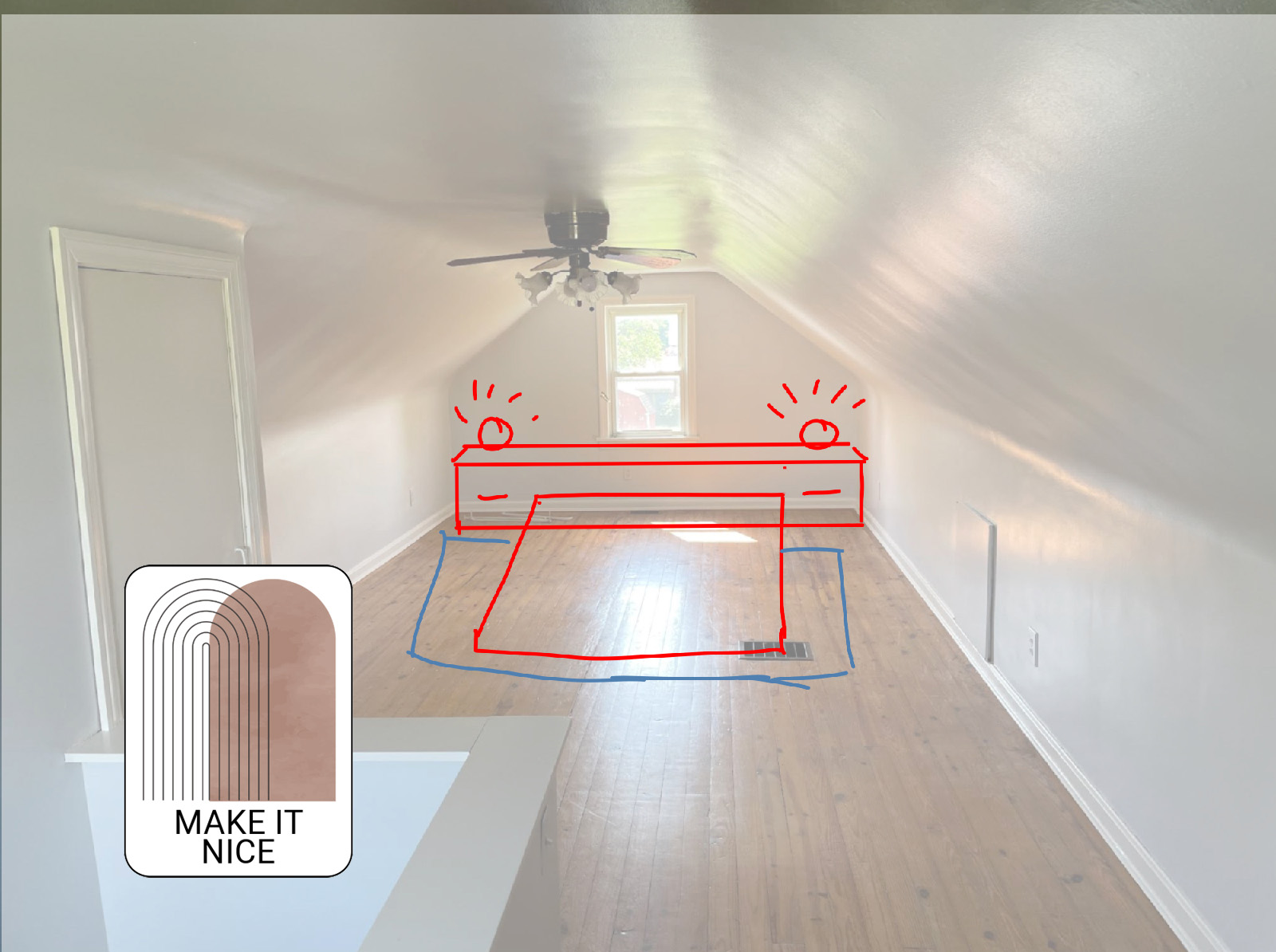Quibi, the subscription digital streaming platform that aired five-to-10-minute TV episodes exclusively on mobile devices, died yesterday. Personally I like to imagine that it happened because Quibi gained sentience just long enough to hear a one-sentence description of itself, and then immediately lowered itself into a vat of molten steel like the Terminator.
The official story is a lot more boring, though not without its charms. The brainchild of megalomaniacal former Disney and DreamWorks head Jeffrey Katzenberg and serial executive-class remora and wildly failed gubernatorial candidate Meg Whitman, Quibi burned through, at a conservative estimate, somewhere between $1 billion and $1.75 billion in investment or seed money or whatever over the slightly more than two years of its existence, only for its creators to discover within three months of its actual product launch that, whoops, no one, anywhere, wanted to pay money to watch seven-minute TV episodes on a phone. Here is a fun detail from the Wall Street Journal's story about the company's demise:
The decision to hire the reorganization firm came after starting a process to sell the company, The Wall Street Journal reported. Quibi pitched suitors including Comcast Corp.’s NBCUniversal on a sale, according to people familiar with the matter, but would-be buyers were put off by the fact that Quibi doesn’t own many of the shows it puts on its platform.
Ha!
Catastrophic tech-startup failures are the best kind of story that can exist in America in the 21st century, and the only kind of good story that can come out of an industry whose successes are pretty much uniformly horrifying and abominable. I treasure them. American society increasingly resorts to an abstract, Process-ized, anti-human concept of what it even means for a venture to "succeed" or "fail": Uber, as an example, has never come close to conventional profitability, has ravaged what were once thriving taxicab industries in many American cities, has replaced stable and reasonably normal cab-driving jobs with an underclass of quasi-employees hustling absurd work-hours to barely break even, and at best merely facilitates the dispersal of the very concept of gainful employment into the purgatorial gig economy in which a person increasingly monetizes every moment of their waking life to keep the lights on... and is, by most reckonings, one of the signal success stories of Silicon Valley.
Facebook never made a buck until it hit on a model for sucking the journalism industry dry, destroying countless publications and media jobs, and turning public discourse over to a horde of traffic-hustling charlatans and conspiracists, and is one of the richest and most powerful companies on earth.
Twitter is a bottomless money pit, is used by roughly no one, and wags media's desiccated corpse around like a tail.
In light of all this it is a source of very nearly orgasmic delight to be reminded that a would-be disruptive tech venture can, in fact, just straight-up fucking fail.
One fun kind of startup failure is the kind that makes wild claims about its ability to deliver a revolutionary product, hoovers up ungodly sums of investor money, then never delivers anything even vaguely recognizable as the product it promised, and collapses as it becomes crystal-clear that its founders were big-talking phonies and investment money was the only kind of money their company would or could ever make. At least a couple of Elon Musk's various companies, for example, are at various points along this story arc; the eventual hilarious stories of their failure are like unrealized assets, Christmas presents waiting to be opened. When a standard Silicon Valley founder-type (that is to say, a moral idiot who watched The Social Network with the sound muted one time) applies this template to an actual regulated industry (laboratory blood-testing, say), the result is many very serious felonies, but honestly this kind of thing is a hoot even when it's just some cockamamie nonsense about using algorithms to find previously hidden oil deposits.
Another kind is a little more innocent, but ultimately much funnier: The startup that actually delivers a product, but an obviously worthless one that nobody wants. You may recall Juicero, the company that produced a large, heavy, $400 WiFi-enabled countertop juice press for squeezing fruit juice out of Juicero-branded bags of fruit juice, and which capsized when some of its marginally less stupid early adopters discovered that they could just squeeze the juice out of the bags (of juice) with their hands. What makes this variety of startup failure so magical, what gives it its, ah, juice, is that it functions as an index of the gap between the class of putative business-savvy investor sharks who dump their money into these ventures and the real world, itself largely filled with doofuses who spend their money on stupid things, but no significant number of whom would ever think "Ah yes, a large expensive internet-reliant device, that is what I need in order to get some fruit juice."
Quibi, I believe, was this latter kind of failure. By all reports Katzenberg, at least, sincerely believed in the promise of the galactically stupid idea of "TV, but seven minutes long, and you can only watch it on your phone." It is not hard to imagine how a 69-year-old billionaire who made the bulk of his fortune betting on the production of entertainment for kids 30 years ago might come to genuine enthusiasm for this idea. If you close your eyes you can almost hear the pitch forming in your grandfather's mind: Every time I see these kids, the kids, they're always on the phones, staring at the phones, my gosh, you can't even talk to them. What are they doing on the phones that's so interesting? Is it the texting? Is it the, the YouTube? My gosh! They don't even look up! So I says to myself, I says, "To get to these kids, you gotta make something they can watch on the phones." At heart it was an old man's attempt at speaking his grandchildren's language; as such, they should have named it "Intendo." To the kind of very rich man given to understand that an idea is a billion-dollar idea if he first encountered it inside his own mind, this would have seemed a self-evidently ingenious business idea. And besides, look at all the stupid shit that comes out of the tech industry and makes people rich!
But there's another sad generation gap manifesting itself in Quibi's crashing failure: It was bedeviled, from the beginning, by the very antiquated belief that in order for a startup business to succeed, it must actually succeed. Like, as a company that makes and sells a product, even! They dumped over a billion dollars into this thing, they built it at an absurd scale, they gave Quibi programming creators ownership of their shows instead of fashioning some flamboyantly evil legal framework for extracting even their own personal names from them, because they actually thought they were starting a company that would create and sell a good product and fill what they perceived to be an actual opening in the entertainment industry. Those dolts. Those absolute fools! A startup company isn't an industrious venture that makes and sells a worthy product; a startup company is a plywood box containing a whiteboard with arrows and numbers on it and as few employees as possible, which gets passed around among progressively meaner and more craven moral dwarves until it can no longer sustain even the flimsiest illusion of extractable vitality, and then is dissolved.
The median tech industry startup is all but explicitly smoke and mirrors, rooted in "fake it till you make it" overpromising and theater; startup culture valorizes bullshitting and/or outright deceit as a kind of capitalist derring-do. And while the "make it" part of the formulation certainly can mean "delivering on the good and/or service the creation of which is the company's nominal reason for existing," exponentially more often it means sustaining the illusion of efficiency and productivity long enough to secure a huge sale to a larger entity. Often the larger entity knows it's buying bullshit, and is happy just to squat on a patent or break up a workforce that might theoretically have posed competition had it fallen into the hands of someone who intended to run it as an actual business. There's an entire industry based on finding out the shit big tech firms haven't patented yet, creating fake companies only nominally working on the same thing, and then essentially extorting the big companies into paying off those fake companies' owners. Quibi could have done this. In the hands of a purer charlatan, one not beholden to a dead old world's notions of business success, it would have had a purely for-appearances staff of four people and a minuscule budget, required show creators to sign over their firstborn children in exchange for dirt, and emptied itself into Amazon's featureless all-devouring mass a month ago, to the downright criminal enrichment of its founders and early investors.
But let's go back to the very dumb Quibi idea for a second. It's fine to credit some part of its spectacular failure to the havoc the pandemic wreaked upon its business model: To whatever extent a menu of seven-minute TV shows you watch on your phone ever had any appeal, it could only have been to people who commute on public transit, and far fewer people are doing that these days. But that's just a proxy for a larger imaginative failure, illuminated like so many others by COVID-19: In the foreground, yes, the kids are always on the phones, yes, with the texting and the Instagram, and you can't even talk to them, yes. In the background, though, the more powerful prerogatives of American capitalism were already hurrying with great leaps toward the final erasure of boundaries between working and private life, toward terminal divestment from physical working spaces for the sake of overhead cost savings, toward remote work and atomized society and stillness and isolation, long before coronavirus showed up to lock people in their houses. WeWork's investors already got their fortunes nuked into hell betting, hugely and foolishly, on the durability of the dedicated workplace as a feature of working life in any but service-industry jobs. The way of the future isn't white-collar workers with disposable income watching seven-minute shows on their phones while they commute to work; the way of the future is white-collar workers paying half-attention to hour-long serialized prestige shows on TV while they do their jobs, in their homes, all of the time. If COVID hurried that future along, it's only for all the same reasons it was going to happen eventually.
Which is to say: American society is a capitalist hell in the later stages of metabolizing every facet of life into sterile, servile, surveilled post-humanity. Whatever distracts you from that will need to do so for a lot longer than seven minutes.







